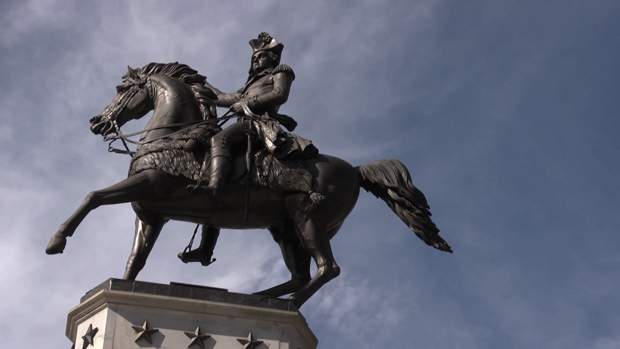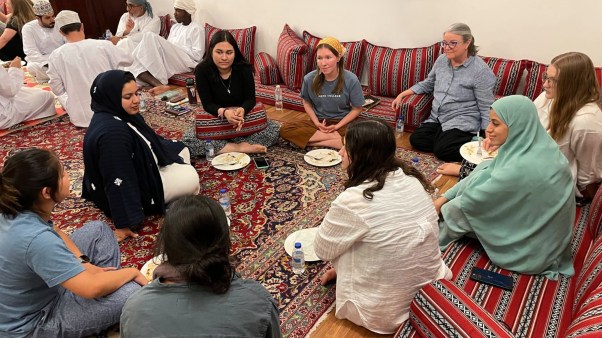In the past four years of economic upheaval, the Tea Party and Occupy Wall Street have been the defining political movements of the Right and the Left, respectively. This Is Our City’s documentary film profiling two Christians in the movements examines the right-left divide among biblically committed Christians through this parallel divide in the civic sphere.
Emmett Bailey of Richmond, Virginia, and Pam Hogeweide of Portland, Oregon, are immediately likeable folk—and not just because we see them serving generous quantities of food in dining rooms, though that helps. They both profess Christ and want to bring what they understand of his teachings to the sphere of political responsibility.
The film’s title, “With Liberty or Justice for All,” sets liberty and justice against each other. Emmett, the Tea Party Republican, sees justice in terms of liberty (though he does not mention justice), and understands liberty as “all that’s good about life, all that’s good about being a Christian”—which, at first glance, seems to imply that the gospel is about enjoyment and freedoms in this life alone. Pam, the Portland Occupier, sees justice as the fruit of revival—a return to life sent by God—which is presumably a state of liberty (which she does not mention but surely implies). Though we see her marching for justice, “the language of God,” she does not indicate what she believes justice to be. The “99 percent” language of the Occupy movement suggests that it might have something to do with economic leveling.
Pam speaks expansively only when she describes the time she realized that the revival in the church for which she had been praying might actually come outside the church, when non-Christians hunger for justice. This is a strikingly political notion of revival and thus of the gospel. As she presents it, revival is something non-Christians are capable of experiencing while remaining strangers to Christ.
Perhaps these descriptions do not faithfully or fully represent Emmett’s and Pam’s views—we can only discern so much from snippets of interviews. But taken on their own, the views they express here sound like civil religion on the Right and the social gospel on the Left—the besetting sins of Christians at each of these poles.
The one statement of substantive political thinking in the film comes from Emmett, and I think it is profound. He describes a healthy political order as one made up of largely self-regulating citizens. “The Founders’ vision was, and because God’s vision was, that we would be … regulated from within. In other words, we’re self-regulated. In other words, when God is being honored, people regulate themselves, not being regulated from the outside with laws.” In language more reminiscent of the nation’s Founders, men are least in need of masters when they can master themselves.
Biblically speaking, we find the prophets Jeremiah and Ezekiel stating this idea when they foretell the fulfillment of Christ’s redemptive work in the New Covenant. At that time, people will no longer need instruction from without, but instead will know from within what is right and act on it faithfully (Jer. 31:34). “I will put my Spirit within you and cause you to walk in my statutes and be careful to obey my rules” (Ezek. 36:27). Of course, that’s an eschatological picture, one of our complete liberation from sin after Christ’s return. But such pictures indicate what we should aspire to embody now.
In other words, what God desires for a politically healthy nation with a strong Christian influence is not a society top-heavy with complicated laws and omnipresent bureaucracy, but a society of decent people who need few laws because their character largely suffices as law and who demand few government services because they serve each other. Bailey suggests that our government would be more faithful to our God and to our Founders if it would protect this character in the people against corrosive economic, cultural, and political influences, and promote it where it was lacking.
If I were looking for a helpful point to take away from the film, that would have to be it. Whether Emmett and Pam could agree on this, I have my doubts. They are more likely to enjoy a good feast together. But that’s a good place to start.
D. C. Innes is associate professor of politics at The King’s College in New York City, and coauthor with Lisa Sharon Harper of Left, Right and Christ: Evangelical Faith in Politics (Russell Media). Look for Harper’s response to the film tomorrow at ThisIsOurCity.org.









